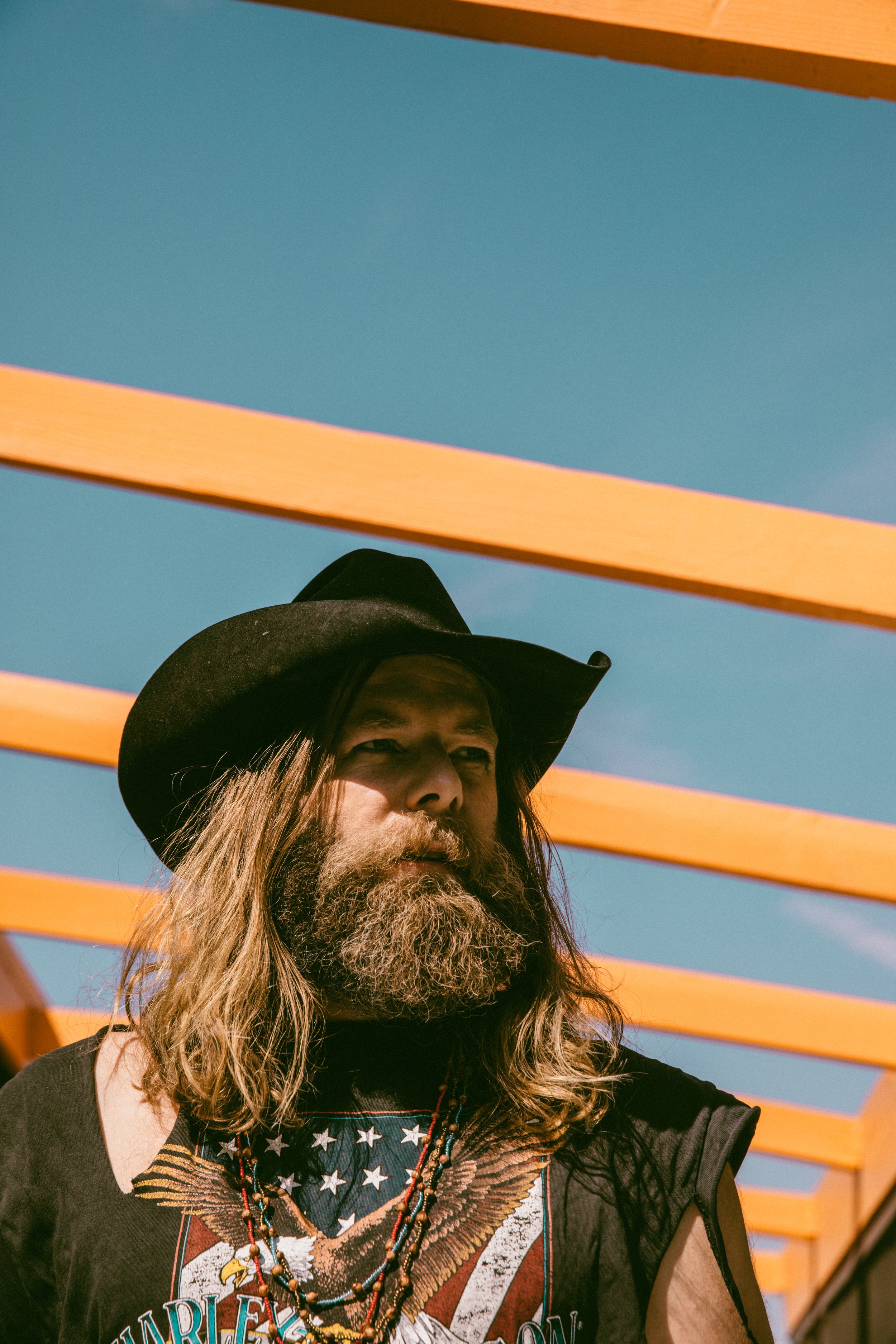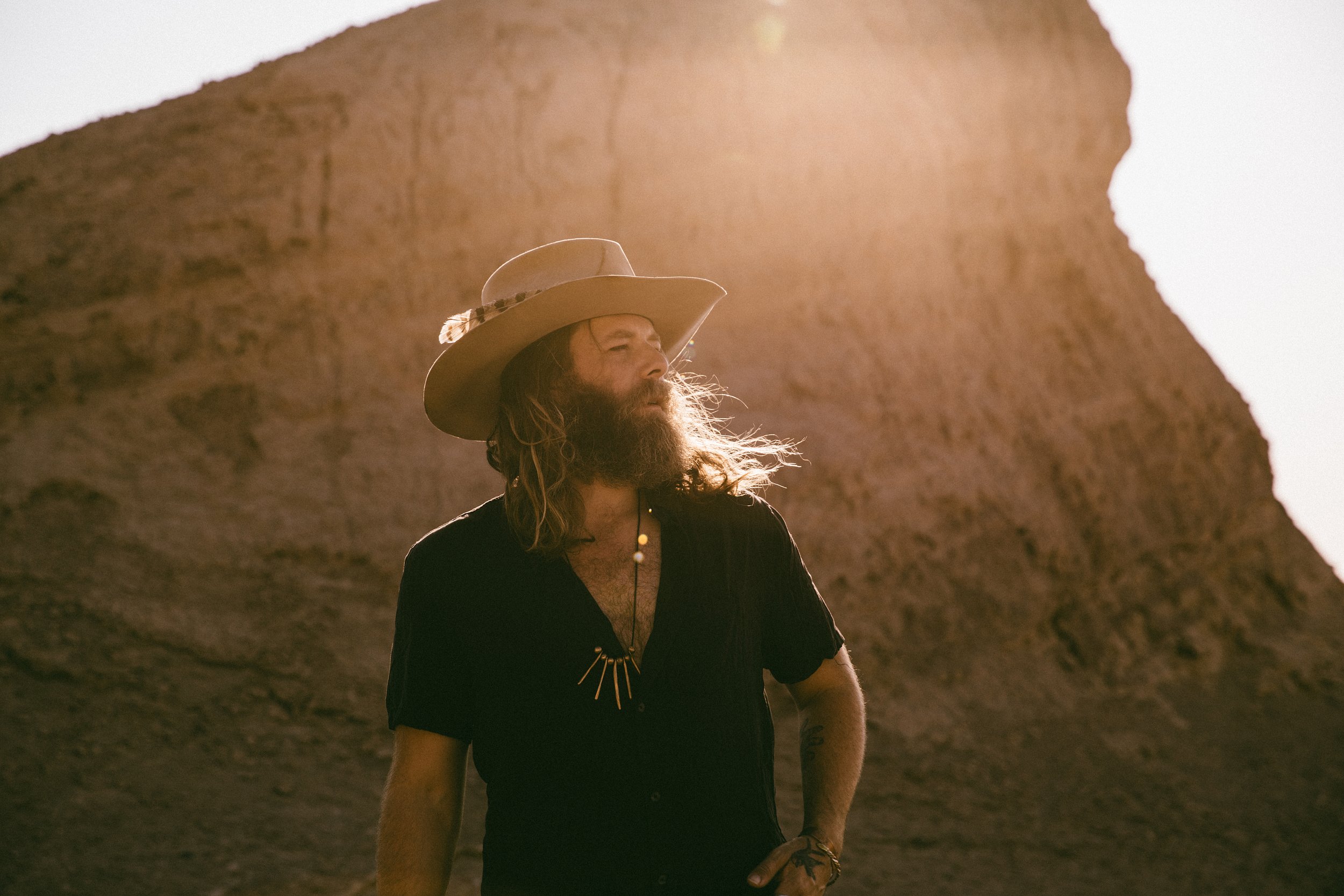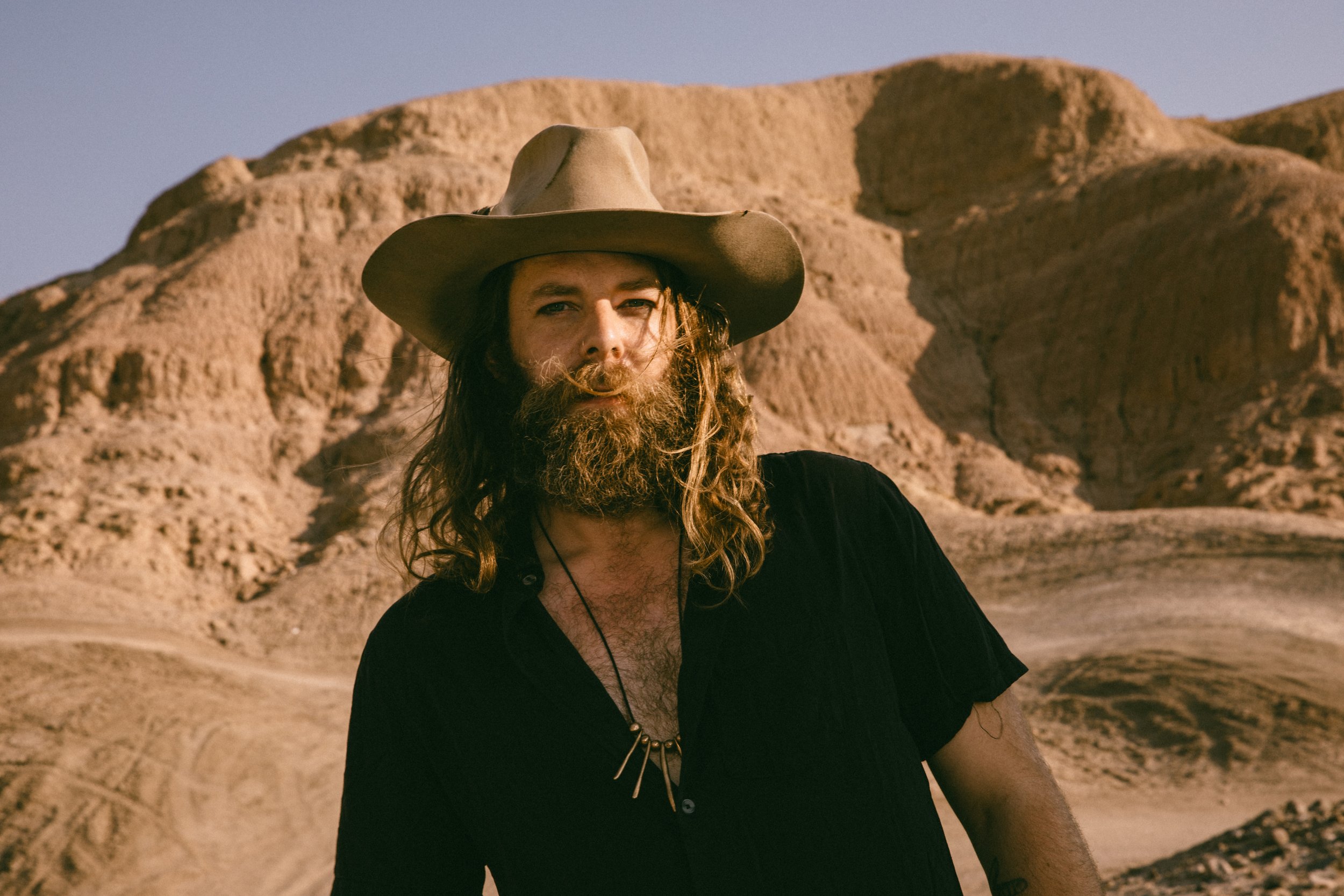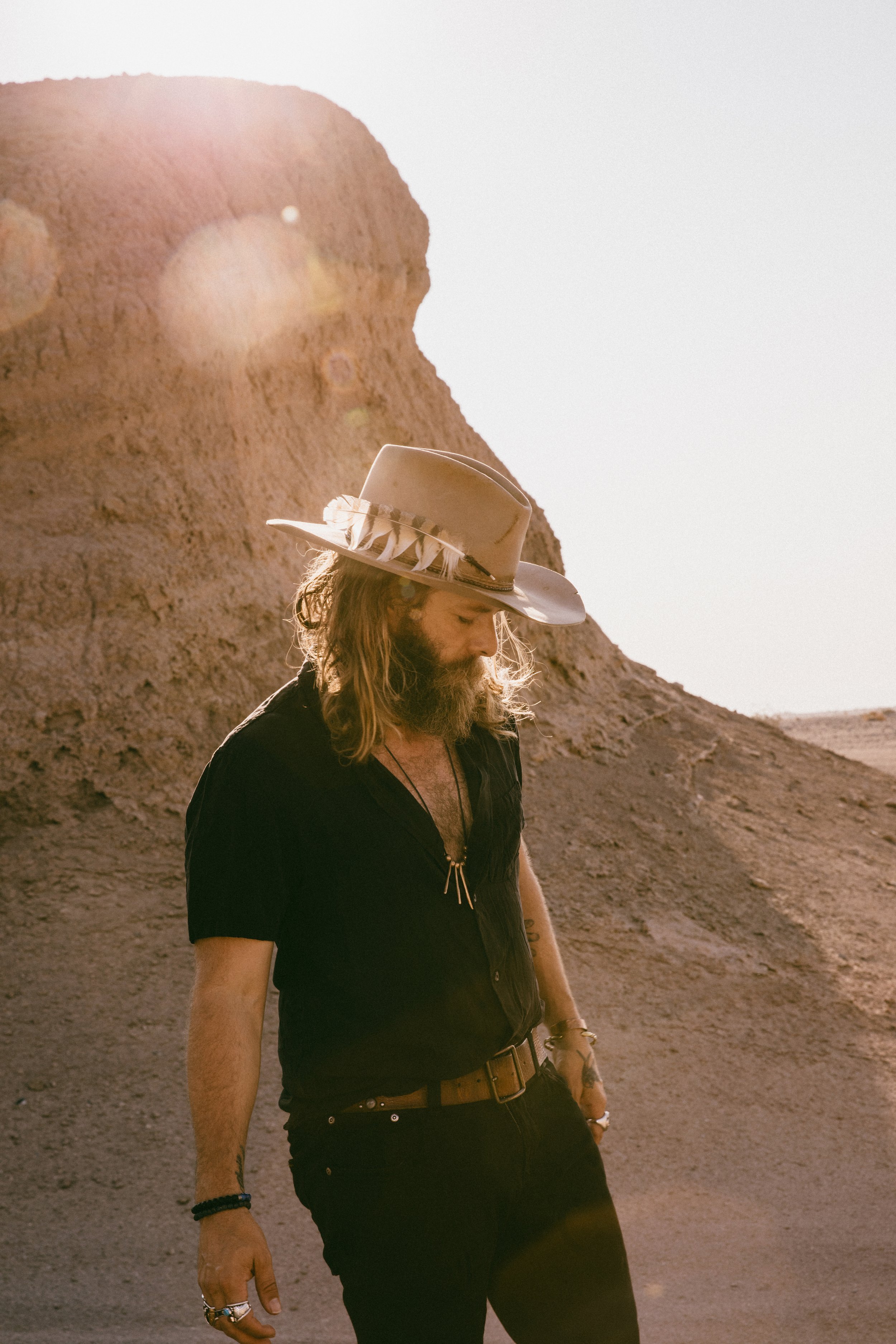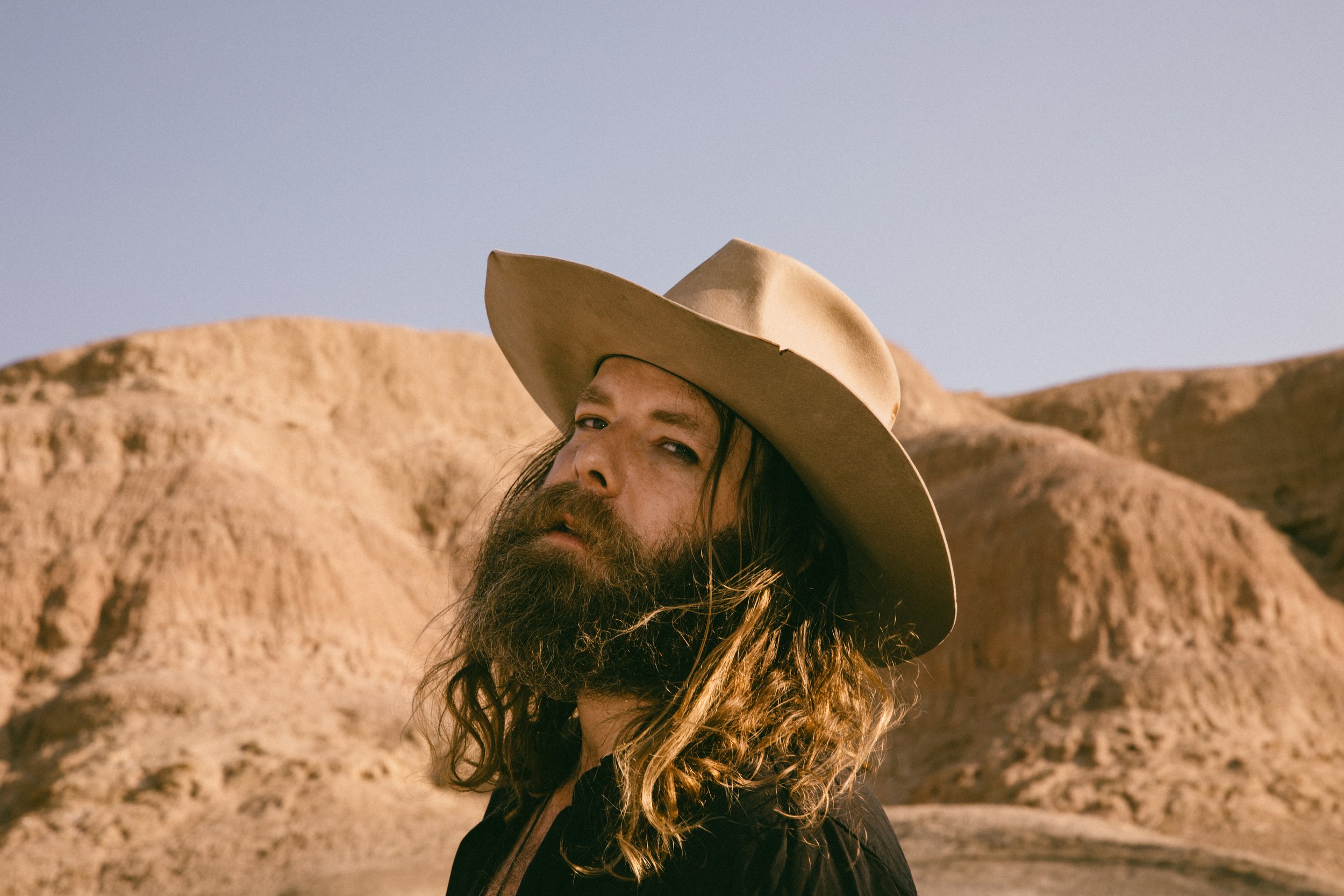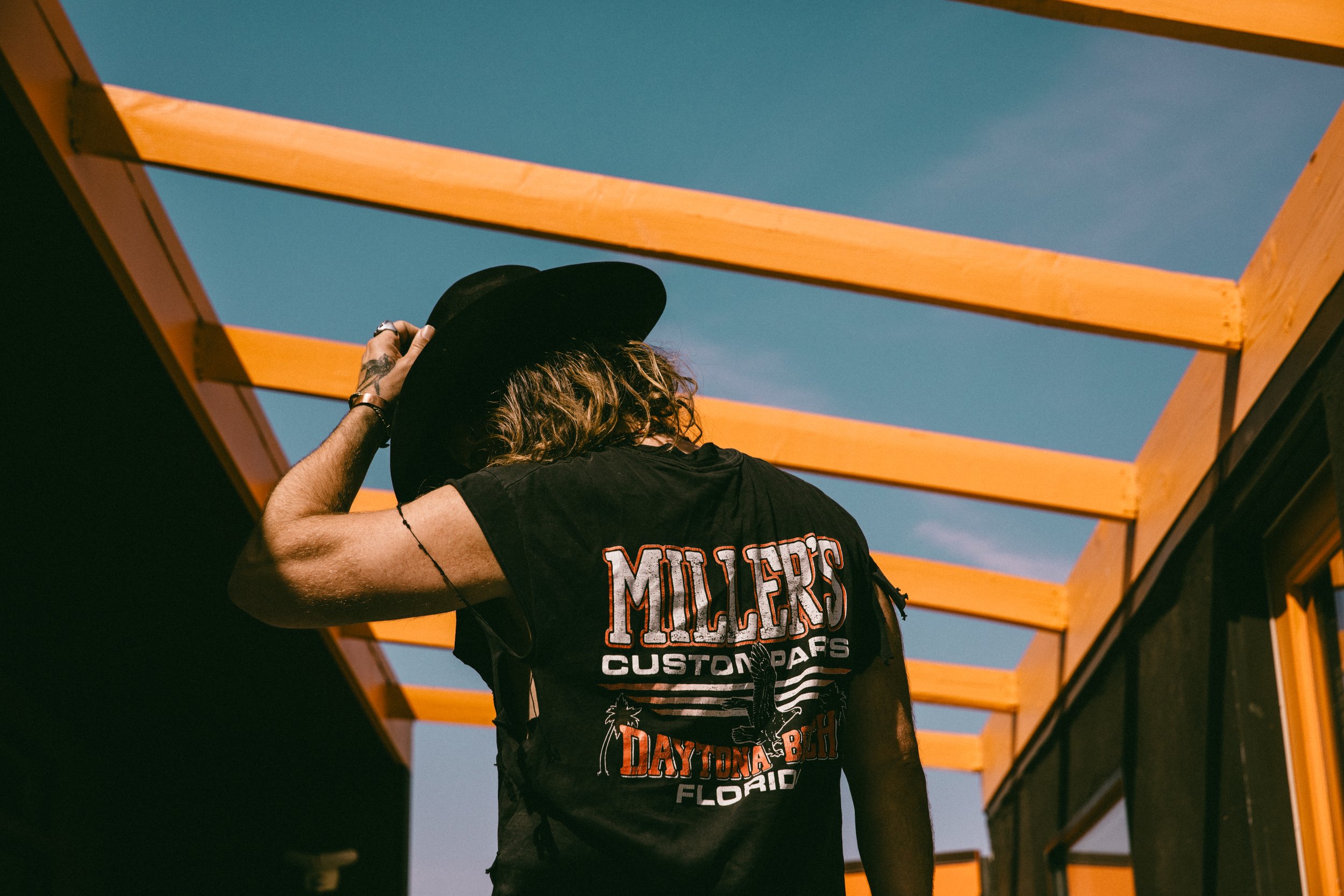Click Image to Download!
Artists of any genuinely astral ilk have the shared tendency of wishing to remain undescribed; they seek only to be imbibed at their highest-gravity distillation. No truly gifted singer has only one quiver in his bow, meaning the perfect word today might be deeply flawed tomorrow. What has remained demonstrably staid and true since his artistic inception as a very young child is that Wesley Dean’s voice is a ceremonial knife with a gunpowder finish made for silvering the copper nitrate within the daguerreotype of a distinctly different kind of sonic dream. Having been to the top of the ARIA charts and to the bottom of the Sydney dives too, hitting platinum-selling singles (“You,” 2008), gold-selling albums (The Way the World Looks, 2009), and songs so universally popular that they achieved “Most Played” status on Australian radio as well as becoming thematic part and parcel of entities like CBS America and the Australian Rugby League along the way (“Feels Like Woah,” 2009-2010), Dean’s purity of intention has been comprehensive and cross-disciplinary. Taking in Australian Idol wins, CMJ alt-country altitudes with a self-created and SIA-shouted project called Buffalo Tales wherein both the Blood and Bone EP and Roadtrip Confessions full-length beat a brazen path to #2 on the iTunes Singer/Songwriter charts, and band time with Silverchair’s Ben Gillies traipsing the concert circuits as Tambalane to boot, he had tasted every flavor of musical experience, and invented a few that still do not have proper names, long before he was in his middle twenties. Unbeknownst to Dean at the time, all of this was only happening in Chapter One of what would become his inimitable and utterly uninhibited artistic arc.
Everyone knows that all unavoidably iconic songs hinge on hooky, brilliant bridges. What they may not realize until now is that Wesley Dean’s musical career thus far has been nothing short of “Thriller” for its unexpected twists of rhythm and cathartic undertone. The middle eight to all that chaotic choreography in the song of Dean’s dance with the decibels went something like this: touring a sold-out one-man show called Here Comes The Sun that he wrote about George Harrison, writing tunes for Christopher Guest’s film For Your Consideration, joining forces with Jeff “The Skunk” Baxter (Steely Dan, Doobie Brothers) and CJ Vanston (musical director for Joe Cocker) in Los Angeles, and workshopping song production with Simon Phillips and Graeham Goble for a stage musical by and about the Little River Band wherein Dean likewise played Glen Shorrock in the show. Ginning formidable heat during his formative years in the Sydney folk and rock scenes also led to songsmithing sessions with Andrew Farris of INXS, guitar gunslinging for both Paul Mac and Missy Higgins, winning Best Male Artist in the International Acoustic Music Awards, and taking second place in the largest songwriting competition in the world.
The Adelaide of Dean’s upbringing figured heavily and presciently in his aural ascent as he was writing award-winning material with Cold Chisel’s Don Walker (“Lost,” International Songwriting Competition, 2013) while still too young to buy a beer and embarking on a 58-date tour with Ian Moss just a few spry years later. Viewed through the lens of such legend-rich leaps, there can be no question that Wesley Dean’s spirit-sourced songwriting gifts have been on an acoustically treated frigate with Fate since he first began professionally showcasing his old-soul ochre at such a young-in-life age, but “star” is a world-weary label that always comes with some prefabricated wear and tear of a terrifyingly terrestrial variety. Chapter Two of Dean’s calling would require him to throw a flaming axe dead into the back of any and all such pat expectations, be they sky-dwelling or subterranean in nature.
The crucial component of all this backstory is the wonder of what it began, and the trouble with being guileless is that it gets you killed, both systematically and symbolically, but nowhere more swiftly than inside a music industry specifically mechanized to rapaciously devour authenticity whole, spitting it back out in endlessly commodified, tame-making templates. Wesley Dean was to enjoy no exceptionality when it came time for the predictable scuzzards with the shadowy passports to unreservedly prey upon his path and passions. However, the beauty of outliers has always been that they take a knee to exactly none of this, no matter how far any Taker shoves their Giver dream into the dirt. Despite the irreversible hurt that cannot be undone whenever anyone puts the heavenward haptics of a natural capability like Dean’s in a hammerlock, there is treasure in some kinds of traitorhood, and quicksand can teach one invaluable lessons about how to move deliberately and incrementally to solid ground–and what to look out for in the future if staying there is a priority.
During just such a five-year period of reflective learning, and in a formal retreat from what his life’s sounds had (and had not yet) wrought for him, Wesley Dean sensed unsung testimonies within his heart, even as he was summoning a stage of self-imposed creative catatonia on the Sunshine Coast in search of a simpler life. With a young family now in tow, it seemed implicitly predetermined that he was not this time going to imperil those iridescent impulses with any familiar forms of fissure that he now recognized as inherent to the fraternal fastlane of the music business. This was a piebald zebra crossing of the soul, and Dean was tasked with determining which way would lead to an era of options as gaunt as Egon Schiele and which would put him on a rocket road as rarely observed as the fabled blue sunsets of Mars. An unbridled and unseeable new was needed for the serendipitous songs that were pouring out of him, and out of that came an album called Unknown, full of mission statement melodies centered on the big question marks of life—and heralded by a bold transpacific move to Nashville at the zenith of a global pandemic with no possibility of a return ticket and no plan beyond trusting in the greater geometry of the gypsy blueprint in his blood.
A man who cannot appreciate the delicious dichotomy that permeates every pore of human life is short on sense, but the man who sees only two roads ahead of him is starved for sight. Rather than try any longer to muffle his Hydra-headed contrasts or to train his songmaking talents to any trim monochrome mettle, Wesley Dean elected at the great crossroads of his life to courageously submit to the calico symphony of true self-actualization, both as an artist and as a man, and this meant embracing it all, especially those things most foreign and fearsome. Arrival in this unplanned place, both physical and metaphorical, brought Dean straight back to an old him—but a freshly rebooted version leading with a polished, panoramic perspective that was ready to show his inborn versatility to be his most unassailable artistic strength.
The years roll back when anyone starts looking forward, and the press of the unlearning was urgent for Dean. With a will and ambition uncontaminated by anything that went before combined with the powerful production instincts of Justin
Cortelyou, Unknown stands as a beacon of anticipatory empathy for uncertainty and has served as the portal to the latest conceptual threshold Wesley Dean finds himself creating from scratch: Crazy Hearts, the record and the tour. Crazy Hearts is untrodden and ultramodern. Recorded at RCA in Nashville, the sheer scope of this album’s independent visuals, travelogue ethos, and open-highwayed open-heartedness is unprecedented in modern music. Dean has spent the better part of the past year conceiving outlandishly original videos and photojournalistic editorials for this sacred set of freedom songs, as well as the entire summer of 2023 driving an RV filled with his whole family and wrapped in the swirling, psyche-seventies Crazy Hearts logo all over the United States to play the album in homespun settings, hugely influential venues where both blues and rock got born, and offbeat pop-up places even his wandering mind could not have imagined. Crazy Heartsrepresents not just the next quantum vault forward in Dean’s madcap musical superhighway, but the auteur-like church of his own creative vision he was always quietly seeking, and one in which the sanctum sanctorum bears a sigil he has painted with the kind of holy water that only falls from our eyes once we have learned to cherish the tears and the laughs of life in equal measure.
The formulaic world of today rather unfairly tells artists that a beautiful portrait can only start with a well-chosen, single vanishing point. But Wesley Dean was not designed to become yet another beleaguered single-use poet in the harmonic hit parade. Both peripatetic and profound, he is a virtuousic storyteller above all things, and puts the ear-equivalent to a reverse sear on what the less alert would call the supernatural and what raw rovers like him would simply call the obvious. Dean has not just illustrated via Crazy Hearts that “accidents” are as fictional an idea as art with constrictions, but hands-down won whatever debate still raged on regarding what life and art can be for those wise enough to realize that “safety” nets are the most categorically unsafe apparatuses on the planet. His self-sufficiency now watchmaker-tight and his unapologetic liberty an argument for absolute individualism gone fully rogue, Wesley Dean is even now looking ever forward, leaving nothing behind but an audio crumb trail like scattered Skittles mixed with M&Ms, and in an aesthetic world were he does not feel the need to separate the colors anymore. Be a crazy heart, he encourages. Taste it all.


